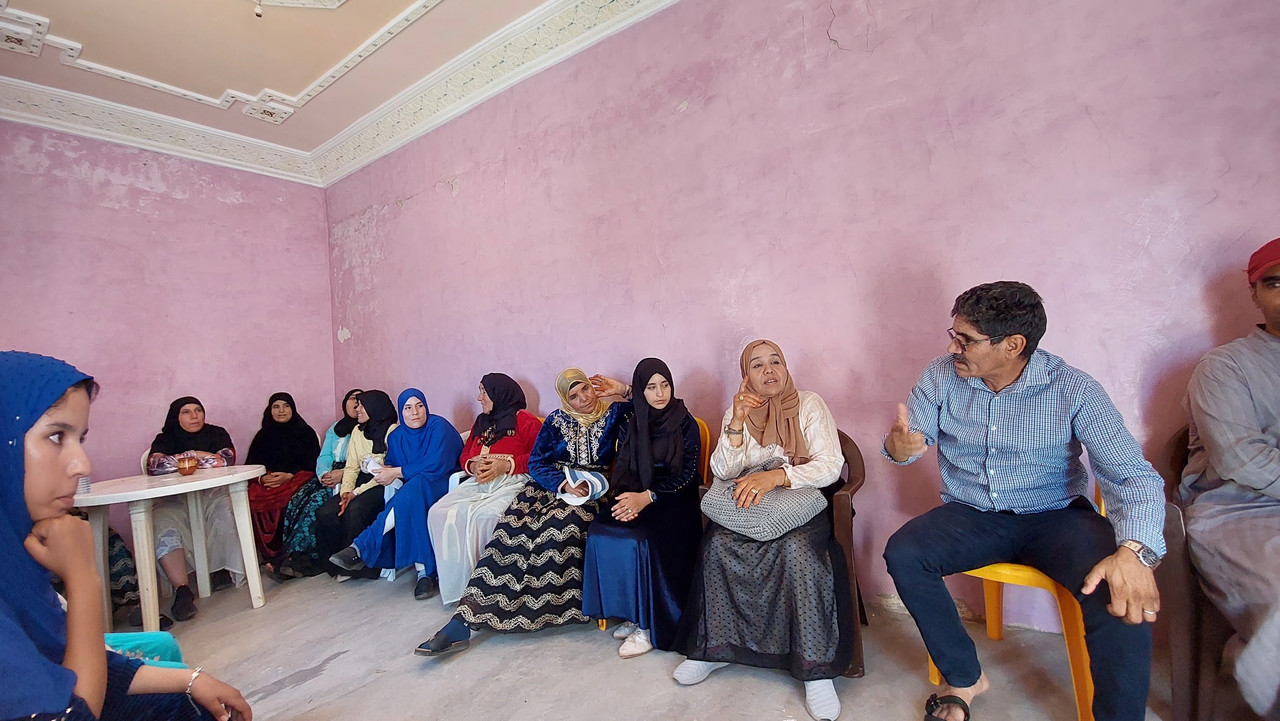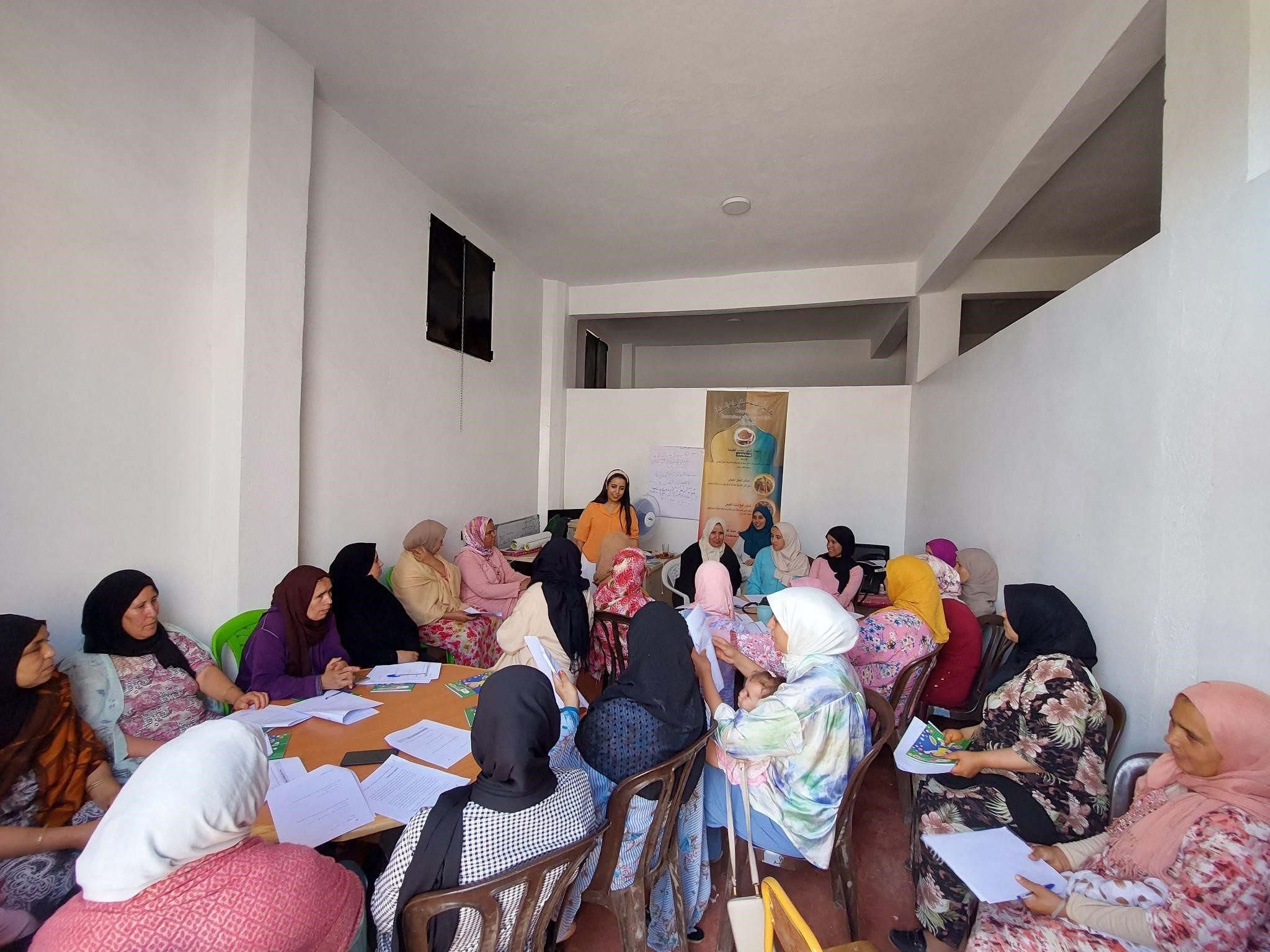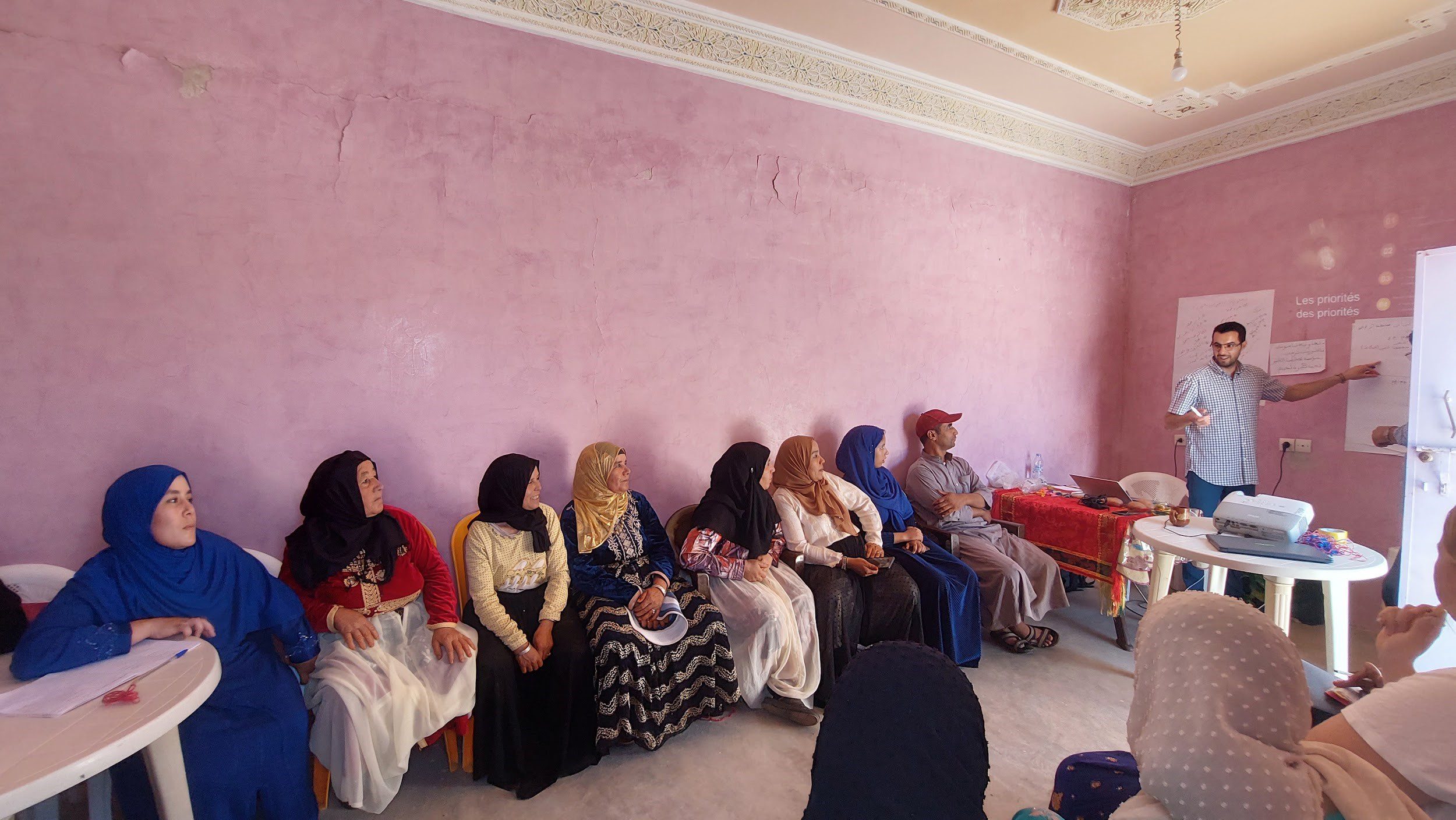Yvette Broex, HAF Volunteer

Photo credit: HAF
In early September, I visited the women’s Tamount Ntourite cooperative in Tourite village (Mzouda commune, Chichaoua province) with staff from the High Atlas Foundation’s program Farmer-to-Farmer (F2F). We spent two fascinating days with the Amazigh women who live in this small village as they participated in a training workshop.
The women of this cooperative are responsible for production of thirty different types of couscous. They only started to sell their products ten months ago, and already these are being promoted in different areas of Morocco.
When we arrived at the village on the first day, the women seemed a little shy and introverted, but their warmth towards us was apparent nonetheless. The women represent their culture in beautiful ways. For example, they wear skirts in various patterns and materials on top of their normal clothes, which is very common for this area. It was also explained to me that this area is well known for the traditional weddings and birthing procedures, for which people from all over Morocco travel to this area to experience.
Their president is a very welcoming and energetic woman. Her gratitude toward the other members of the cooperative was obvious, and the members clearly feel the same towards her. From the beginning of the workshop, the women laughed together and with the people from HAF, which created a very nice environment.
The first day of the workshop focused on how to improve their cooperative, especially improving the management structure (i.e., creating a client list, and so on), one of the women’s goals. But one of the important aspects, according to the president, is the fact that their purpose is not solely to earn money. The cooperative offers the women the opportunity to grow, and it offers them a change of scenery from their daily lives. This was illustrated by one of the younger members describing the cooperative as ‘an addiction’ (in a positive sense, of course).
They discussed the challenges they have faced, such as some of them being illiterate, the costs of materials and transport, and difficulties in getting certain certificates to sell their couscous in Moroccan stores. However, they aim to improve their skills and expand their knowledge.
In the past, going to another village would have been a big step; however, because of the cooperative, they are not holding back from taking these steps anymore. It is very clear that the women work closely together, characterizing it with phrases like “working hand in hand” and “everybody completes each other.”
When we returned to the village the next day, I received a different kind of welcome, with the women opening up more because of the previous day’s activities. They had made a very beautiful skirt for me and dressed me in traditional jewelry, which was a very special experience.
On the second day of the workshop, the expert trainer focused on different strategies for solving the problems faced by the cooperative. Exercises helped them make a distinction between urgent tasks and other ones, and organize their budget.
After spending two days with the Tamount Ntourite cooperative, I felt that they are very welcoming, kind and motivated women. It is clear they are very proud of their culture, as they should be!





